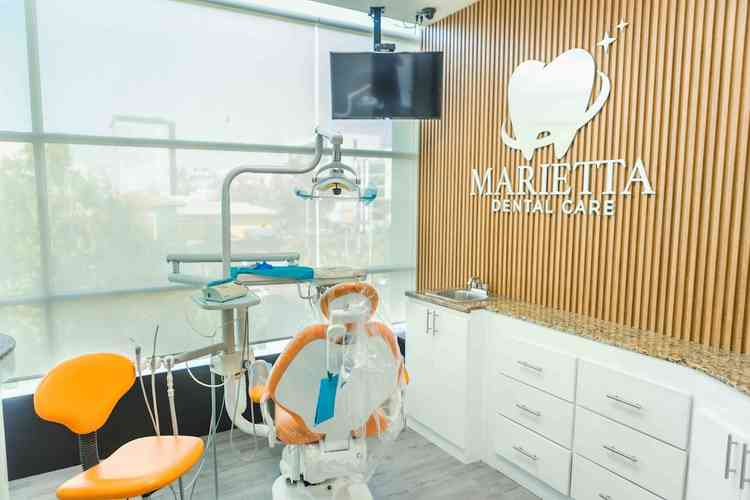Can Tooth Infection Cause Heart Problems—or Is That a Myth?

Prathyusha Itikarlapalli
- Content Writer

Gustavo Moreno Vargas
- Reviewed by

Key Takeaways
- Severe, untreated tooth infection enters the bloodstream and causes heart problems. Harmful bacteria infect the heart valves or their membrane lining. The growing colonies cause inflammation of the heart muscles, affecting their ability to pump blood and causing heart failure.
- Bacterial colonies populate within the arteries carrying oxygen-rich blood to the heart and form plaques. Eventually, they cause arterial inflammation and obstruct the blood supply to the heart, causing death.
- Not every tooth infection causes heart problems. Candidates with birth defects of the heart, underlying heart problems, or cardiovascular problems are more prone to developing complications.
Dental Infections: A Brief on Their Severity
Over 100 billion bacteria, belonging to 200 predominant species, live in the human mouth.[1] While this population comprises both good and bad species, maintaining a healthy balance impacts your oral and overall health. Following a better oral hygiene regimen promotes better dental health. Failing which can take a severe toll, increasing the bacterial population, which depends on the trapped food particles.
While this starts with simple plaque build-up, over the years, it can be a silent killer. Bacteria make their way into the tooth structure, causing dental cavities. Untreated dental caries are dangerous and can spread to the surrounding jawbone and tissues, causing periapical abscesses. Sometimes, bacteria also infect the food particles trapped between the tooth and gum tissues, leading to inflammation and abscess formation. In severe cases, it may cause periodontal abscesses that spread to the nearby gums and bone structures. Dentists perform root canal treatment (RCT) or drain the pus, depending on the severity and location. Since abscesses are pus-filled pockets, dentists make small incisions near the abscess to drain the pus and clean the pockets, which should be followed by proper aftercare. RCT is for infections that are confined to the tooth pulp and other internal structures within the tooth.
Common Symptoms of Dental Infection
Typically, tooth infections cause immense pain, sensitivity to cold or hot foods, and fever (although rare). Most people complain of throbbing pain, even with the slightest pressure or biting down on the tooth. An infection that spreads to the gums or surrounding tissues shows up as swelling and inflammation, with pus-filled boils near the gums. In some cases, a dental infection can also “go silent”. Which means they progress without any noticeable symptoms of pain or sensitivity. A symptomless tooth decay does not mean the end of the infection. It's a condition of gradual bacterial progression, which can be even more dangerous. Some candidates follow at-home tips to clear the tooth infection. However, note that you cannot steer clear of the growing bacteria using a home regimen. Although it improves oral hygiene and offers relief, you will need a dentist's help to get rid of the infection-causing bacteria. Without prompt action, the tooth infection may spread to the brain or the heart. It may also obstruct the airways, causing death.

Can Tooth Infection Lead to Heart Problems?
Yes, the bacteria causing tooth infection can enter the bloodstream and spread to the heart tissues, causing heart problems. These can be serious and may even lead to death in individuals with lowered immunity or pre-existing heart issues.
How Does Tooth Infection Cause Heart Problems?
The untreated dental abscesses near the gums, jaw, or tooth root may rupture, allowing the bacteria to leak into the nearby blood vessels. In some patients, it also happens during some dental procedures or intense brushing or flossing that causes trauma to nearby blood vessels. Bacterial entry into the systemic bloodstream is severely dangerous. While the entry point is typically painless, it should not be overlooked. The bacteria multiply and produce toxins that attack the tissues of the heart, causing inflammation. Depending on which tissues are affected, this can lead to serious conditions, ranging from inflammation of the heart lining and muscles to blocked arteries, infected valves, and other cardiovascular complications.
Common Questions Relating Mouth-Heart Connection
You might be surprised to learn that poor oral health doesn’t just affect the mouth. It indeed has serious consequences for the heart, too. Heart problems due to tooth infection generally cause chest pain and irregular heartbeats. As awareness grows, patients and health-conscious individuals often raise important questions about how dental infections, toothaches, or abscesses might be linked to heart issues. Below are some of the most frequently asked concerns that highlight this critical mouth-heart connection.
Can Dental Infection Cause Heart Attack?
Although not direct, tooth infections, especially periodontal infections, can cause a heart attack. [2] A heart attack (myocardial infarction) is damage to the heart muscle caused by a sudden drop in the blood supply to the heart. Arteries carry oxygenated blood to the heart, and dental infections trigger an immune response, leading to artery inflammation. Inflamed arteries with damaged lining invite plaque build-up, a potential cause of a heart attack.
Note that the arterial plaques cannot be confused with dental plaques. Dental plaques are hardened food, bacterial film, and saliva. The arterial plaques are deposits of fat and cholesterol droplets.
Can Tooth Infection Cause Heart Valve Problems?
Yes, a tooth infection can cause bacteria to enter the bloodstream and infect the heart valves and their sensitive lining. This is infective endocarditis, where bacteria multiply, forming colonies and causing inflammation. This damages the heart valves, and they cannot control the blood flow into and out of the heart, causing heart murmurs, chest pain, fatigue, and fever. Individuals with existing congenital heart problems, heart valve issues, or who have had surgery are at a higher risk of developing complications.[3]
Can a Tooth Infection Cause Heart Palpitations?
An untreated tooth infection can indirectly cause heart palpitations, often sensed as an abnormal racing, skipped, or pounding heartbeat. The growing bacteria in an infected tooth enter the bloodstream, reach the heart, and infect its lining, causing infection and inflammation. As a result, patients experience heart palpitations, which may be fatal in individuals with heart problems.
Can Tooth Infection Cause Heart Failure?
Bacteria spreading from the infected tooth can be an indirect cause of heart failure. A healthy human heart pumps blood continuously at a set frequency. However, bacterial colonies in heart valves or their lining cause inflammation. This hurts the heart's ability to function normally, causing heart failure. In a few people, the bacterial presence in the arteries carrying blood to the heart causes inflammation. Inflamed arteries block blood flow to the heart, which is another potential cause of heart failure.
Can Tooth Infection Cause High Heart Rate?
Yes, an untreated tooth infection can elevate the heart rate, especially in candidates suffering from heart valve problems or other cardiovascular complaints. Although it is an indirect cause, the high heart rate due to tooth infection occurs due to:
- Systemic response launched by the body in response to infection
- Infection of the endocardial lining or heart valves
Can an Infected Tooth Cause Heart Issues in Every Patient?
While not every tooth infection leads to heart problems, the risk shouldn’t be underestimated, even in otherwise healthy individuals. Poor oral hygiene, combined with underlying health concerns like diabetes, congenital heart issues, and unhealthy habits, increases the risk of heart problems due to oral bacterial spread. Moreover, even a minor dental infection can trigger a serious immune response in individuals with compromised immunity, leading to severe cardiovascular complications.
Tooth Infection and Heart Problems: Warning Signs You Cannot Ignore
Heart problems due to tooth infection develop gradually and do not happen overnight. Some patients do not see any symptoms of tooth infection until it spreads to other body parts. A progressing tooth infection within the oral cavity typically shows intense pain, sensitivity to hot or cold foods, pus-filled boils, foul smell, or a foul taste in the mouth. However, an actively spreading tooth infection is generally associated with fatigue, fever, chills, facial swelling, and swollen lymph nodes. However, the symptoms of tooth infection spreading to heart are more severe. The infection spread to the heart is often associated with systemic infection, sepsis, endocarditis, and myocardial infarction. During the initial stages, patients experience fever, chills, lightheadedness, and dizziness, with feelings of nausea and vomiting. The advanced stages of infection are associated with rapid heart rate, a sense of pounding heart or skipped heartbeat, and chest pain.
So, is it mandatory to feel concerned about every toothache that causes cardiac issues? If that's the case, it’s important to understand when a toothache might be more than just a dental problem. While most people associate oral health with infections spreading to the heart, there's another lesser-known connection. It's when heart problems themselves cause tooth pain.
Do Cardiac Problems Cause Toothache?
Although rare, a toothache cannot solely be considered a dental issue. In some people, a heart problem manifests as an intense toothache. This might sound weird, as most people understand cardiac pain to be a tight, squeezing heart pain felt around the lungs and radiating to the left arm. And when it said a heart problem showing up as a toothache, indeed sounded weird.
So, how does cardiac toothache feel like?
Cardiac toothache is often felt as a pulsating heartbeat with chest pain, and a sharp, shooting ache radiating around the ears, jaw, and throat, usually on the left side. These symptoms typically worsen with physical activity, which is the main point to help sense an upcoming danger. But why does an underlying cardiac issue show up as a dental problem? Healthcare professionals call a cardiac toothache a “referred pain.” The human body has a highly complex nervous system, and the nerves carry signals from various parts of the body to the brain. While pain is among many such signals, cardiac pain is usually carried by the vagus nerve. This nerve passes through the lower jaw and connects the internal organs with the brain.[4] In some patients, the brain misreads the information to be a pain signal from the jaw, even though it's of cardiac origin. This is often confused with a toothache, overlooking the seriousness.
Doctors confirm the origin of the pain by using a local anesthetic.[5] Pain due to dental origin usually subsides with a local anesthetic or is relieved following a dental procedure. However, persistent pain cannot be confused with a mere toothache. Doctors also perform certain medical tests to rule out or confirm heart-related causes.
So, if you ask us, which tooth is connected to the heart?
While some people believe that the lower wisdom teeth are directly related to the heart, no scientific evidence supports this yet. This is adopted in natural and holistic healthcare approaches.
Treatment for Tooth Infection Causing Heart Problems
Medical treatment for heart problems due to dental origin usually involves a combination of dental and medical surgery. While intravenous antibiotic therapy is mandatory to clear the infection, the medical intervention varies based on the patient's condition. The course of treatment will be determined, depending on the severity of damage and whether the valves require repair or replacement. In some patients, the bacterial population causes a cardiac abscess, either affecting the myocardium or endocardium. These should be drained through surgical methods. The dental procedures include root canal therapy, dental crown treatment (depending on the case), draining dental abscess, or tooth extraction.

Can an Infected Tooth Cause Heart Problems Be Prevented?
Preventing serious health issues often begins with simple oral care. While it may seem unrelated, an untreated tooth infection can lead to serious heart issues. That’s why early dental treatment and routine check-ups aren’t just about saving teeth. They are also about protecting your heart. Attend regular dental check-ups and cleaning sessions. While this removes plaques, it also helps early identification of serious dental issues. Plus, following an oral healthcare routine will reduce your incidence of catching dental caries.
Final Word!
While it might seem surprising, a severe tooth infection can do more than just damage your oral health—it can, in rare cases, lead to serious heart problems. Bacteria from untreated dental infections can enter the bloodstream and potentially contribute to conditions like endocarditis or worsen existing heart issues. The good news? These complications are largely preventable. Prioritizing regular dental check-ups, treating infections early, and maintaining good oral hygiene can go a long way in protecting both your teeth and your heart. In healthcare, prevention is always better than a cure. And in this case, a healthy mouth could help support a healthier heart. Taking care of your teeth isn’t just about avoiding pain or saving your smile. It’s about protecting your future, your health, and the people who count on you to stay well.
If getting quality dental care feels overwhelming or out of budget, you’re not the only one—and you don’t have to figure it out alone. At Envoy Health, we make it easier to access safe, affordable dental treatment without the stress of high costs or long wait times. Your health matters. Your peace of mind matters. Let us help you take that first step—because a healthy smile shouldn’t have to wait. Join Envoy Health today, and feel good about the care you choose.
References
- Infective Endocarditis And Oral Health—A Narrative Review
- A Practical Guide To The Oral Microbiome And Its Relation To Health And Disease
- Cardiovascular Disease And The Role Of Oral Bacteria
- The Tooth, The Whole Tooth, And Nothing But The Tooth: Can Dental Pain Ever Be The Sole Presenting Symptom Of A Myocardial Infarction? A Systematic Review
- Toothache Of Cardiovascular Origin
Disclaimer
The information in this article is for educational purposes only and does not replace medical advice. Always consult your doctor before starting any treatments.
An infected tooth causes intense pain deep inside, even with the slightest pressure, and sensitivity to hot and cold foods. In severe infectious stages, the growing bacteria form pus-filled abscesses around the gumline near the tooth structure, associated with a foul smell and taste in the oral cavity.
Although not specific or direct, a tooth infection can be a serious cause of heart problems when left untreated. Bacteria from the infected tooth or periodontal infection enter bloodstream and infect other body parts, including the heart. Bacterial infection of the endocardial lining or valves may lead to inflammation, damaging the heart muscle. Alternatively, bacteria may also infect the arteries carrying blood, causing inflammation, which leads to plaque build-up. These indirect concerns due to bacteria relate to heart function, causing heart diseases. Reducing sugary foods and carbonated drinks protects your enamel. Relying on healthy food rich in vitamins, nutrients, and antioxidants will not only nourish your body but also improve your heart and oral health.
The timeline for a tooth infection killing a person varies with different factors. It depends on how fast the infection is spreading, the person’s immune response, and the underlying health condition. For instance, people with pre-existing heart problems, like congenital heart valve defects or cardiovascular issues, are at an increased risk. If the infection reaches the heart, it can lead to conditions like endocarditis, which may result in heart failure and, in severe cases, death.
A tooth infection that spreads to the heart is felt with either a pulsating or skipped heartbeat, fever, chills, chest pain, and heart murmurs. While some candidates experience dental cavity symptoms, not everyone needs to face a lingering toothache. A tooth infection that spreads to the heart may go silent.
An untreated infected tooth harbors a harmful bacterial population that may spread to the heart through the bloodstream. These bacteria grow their number and grow into colonies by infecting the heart valves or endocardial lining. This will cause inflammation and damage to the heart muscle.
Antibiotics act against the growing infection and kill the bacteria. Dentists recommend a combination of antibiotics and painkillers, alongside the appropriate dental treatment, to fight tooth infection. While painkillers relieve the pain, root canal therapy or pulp cleaning will ensure your internal tooth portions are cleared of bacterial debris.
So, we partner with the premier healthcare facilities!
Send me the list


